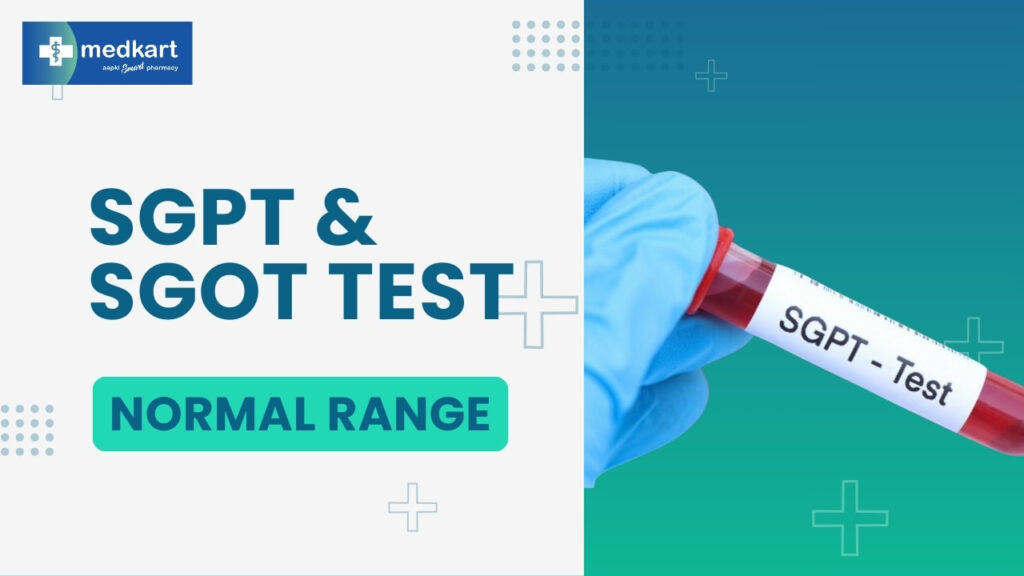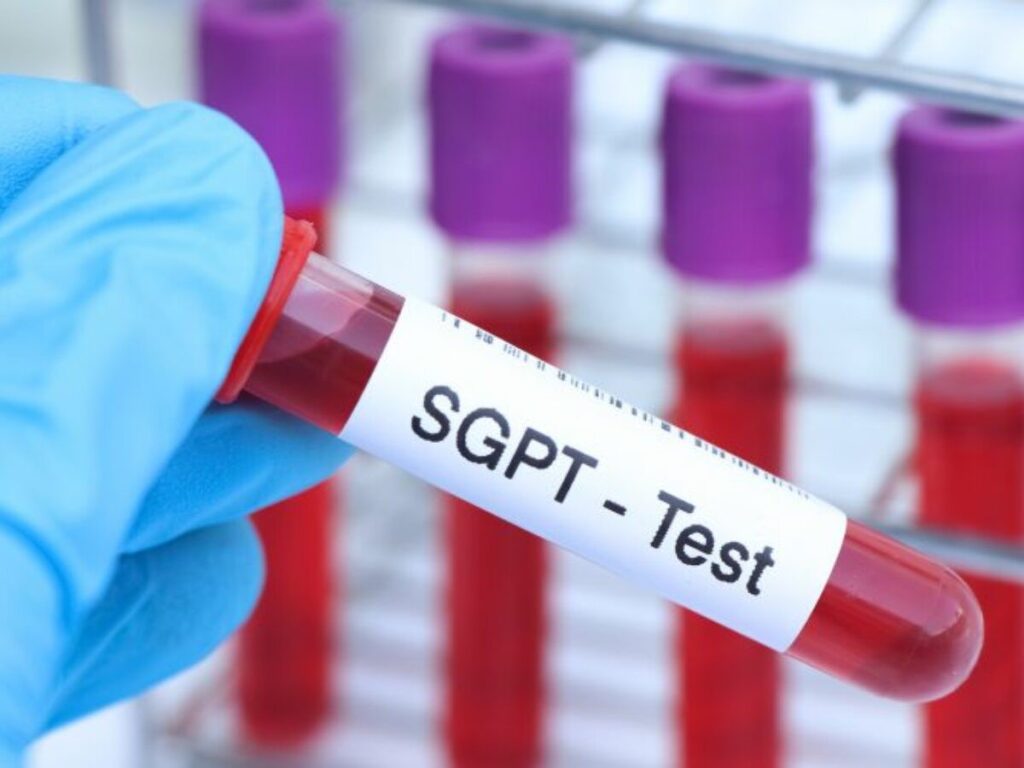Last updated on May 21st, 2025 at 02:52 pm
 The danger level of SGPT and SGOT in blood tests serves as critical indicators of liver health. Elevated levels of these enzymes beyond the normal range can signify liver damage or disease. While mild increases may suggest minor liver issues such as fatty liver disease or medication side effects, moderate elevations often point to more significant liver damage from conditions like viral hepatitis or chronic liver disease.
The danger level of SGPT and SGOT in blood tests serves as critical indicators of liver health. Elevated levels of these enzymes beyond the normal range can signify liver damage or disease. While mild increases may suggest minor liver issues such as fatty liver disease or medication side effects, moderate elevations often point to more significant liver damage from conditions like viral hepatitis or chronic liver disease.
Severe elevations in SGPT (alanine transaminase) and SGOT (aspartate transaminase) levels indicate acute liver injury, potentially stemming from acute hepatitis, liver cirrhosis, or liver failure, and require immediate medical attention. Monitoring these enzyme levels is essential for early detection and intervention to prevent further liver damage and manage underlying conditions effectively.
What are SGPT and SGOT Test?
In the realm of medical diagnostics, liver function tests are crucial indicators of one’s overall health. Among these tests, serum glutamic pyruvic transaminase (SGPT) and serum glutamic oxaloacetic transaminase (SGOT) are frequently monitored to assess liver health. Both SGPT and SGOT are enzymes found within liver cells, and when they leak into the bloodstream, their levels can indicate potential liver damage or disease.
SGPT, also known as alanine transaminase (ALT), and SGOT, also known as aspartate transaminase (AST), are enzymes primarily found within liver cells. These enzymes play vital roles in various metabolic processes, including amino acid metabolism.
Danger Level Of SGPT And SGOT Symptoms
Recognizing the symptoms associated with elevated SGPT and SGOT levels is essential for early detection and management of potential liver issues. While these enzymes themselves don’t cause symptoms, the underlying conditions leading to their elevation can manifest various signs. Mild elevations may not present noticeable symptoms, but as levels increase, individuals might experience fatigue, abdominal discomfort, or nausea.
Persistent or severe elevations could lead to jaundice, characterized by yellowing of the skin and eyes, dark urine, and clay-colored stools. Additionally, symptoms such as unexplained weight loss, swelling in the abdomen or legs, and easy bruising or bleeding may indicate more advanced liver damage or liver disease.
It’s important to note that symptoms associated with elevated SGPT and SGOT levels can vary depending on the underlying cause. While liver-related symptoms are common, other systemic signs such as fever, joint pain, and muscle weakness may also occur, especially in cases of viral hepatitis or autoimmune liver diseases.
Prompt medical evaluation is crucial if any concerning symptoms develop, as early detection and intervention can significantly improve outcomes and prevent further liver damage. Regular monitoring of liver function tests and awareness of potential symptoms are key components of maintaining liver health and overall well-being.

Danger Level Of SGPT and SGOT
1. Mild Elevation
Slight increases in SGPT and SGOT levels may indicate minor liver damage or inflammation. This could be due to various factors such as excessive alcohol consumption, fatty liver disease, or medication side effects. While concerning, mild elevations may not immediately indicate severe liver damage but should prompt further investigation and lifestyle modifications.
2. Moderate Elevation
Moderate elevations in SGPT and SGOT levels suggest more significant liver damage or inflammation. Conditions such as viral hepatitis, autoimmune hepatitis, or chronic liver disease could be responsible for these elevations. At this stage, medical intervention and monitoring are crucial to prevent further liver damage and manage underlying conditions effectively.
3. Severe Elevation
Markedly elevated SGPT and SGOT levels signify severe liver damage or acute liver injury. This could be indicative of conditions like acute hepatitis, liver cirrhosis, or liver failure. In such cases, immediate medical attention is imperative, as severe liver damage can have life-threatening consequences if left untreated.
Consult a Doctor and Medkart will help you Order Medicines Online
Conclusion
SGPT and SGOT levels serve as vital markers in assessing liver health and detecting potential liver damage or disease. While elevated levels can be concerning, they provide valuable insights that enable early intervention and appropriate management strategies.
It’s essential to understand that SGPT and SGOT levels should be interpreted in conjunction with other clinical findings to accurately diagnose and address liver-related issues. Regular monitoring of liver function tests, along with a healthy lifestyle and medical guidance, is key to maintaining optimal liver health and overall well-being.
If you suspect any abnormalities in your liver function tests, consult with a healthcare professional promptly for further evaluation and guidance.
Read: What are Generic Medicines?
FAQs on Danger Level of SGPT and SGOT
Q1. What is dangerous level of SGPT and SGOT?
Elevated levels of SGPT and SGOT in blood tests indicate potential liver damage or disease. Mild elevations may suggest minor liver issues, while moderate to severe elevations could signify more significant damage or acute liver injury, requiring immediate medical attention to prevent life-threatening complications. Regular monitoring and timely intervention are crucial for managing liver health effectively.
Q2. What does it mean if my SGPT and SGOT levels are elevated?
Elevated SGPT and SGOT levels indicate potential liver damage or disease. This could be due to various factors such as viral hepatitis, fatty liver disease, or medication side effects.
Q3.Are mildly elevated SGPT and SGOT levels concerning?
Mild elevations may signify minor liver issues, but they should prompt further investigation and lifestyle modifications to prevent progression to more severe liver damage.
Q4. What should I do if my SGPT and SGOT levels are severely elevated?
Severe elevations in SGPT and SGOT levels require immediate medical attention, as they may indicate acute liver injury or liver failure, necessitating prompt intervention and management strategies to prevent life-threatening complications.
Related Links: